Chinese Classical Novels: From Ancient Tales to Black Myth: Wukong
Explore how Chinese Classical Novels inspire modern culture, from Water Margin to Black Myth: Wukong. Discover these four masterpieces that blend historical epics, fantasy adventures, and timeless wisdom.
Crystal Zhao
1/29/20256 min read
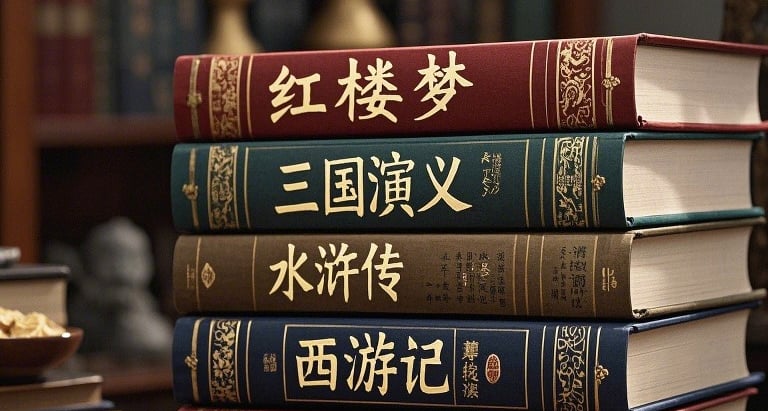

Recently, a game called "Black Myth: Wukong" has sparked global interest. In this highly anticipated title, players embody Sun Wukong, the Monkey King, embarking on a journey filled with fantasy and adventure. The game not only offers players a glimpse into Chinese mythology but also draws attention to its source material, "Journey to the West". This classic, along with three other masterpieces, collectively known as the Four Great Classical Novels of Chinese Literature, represents the pinnacle of Chinese literary achievement, distinguished by their profound philosophical depth, grand artistic vision, and far-reaching social impact. Whether through books or various media adaptations, these works are deeply embedded in the cultural consciousness of every Chinese person. Today, let us explore these literary treasures chronologically, discovering how they have captivated readers for over a millennium.
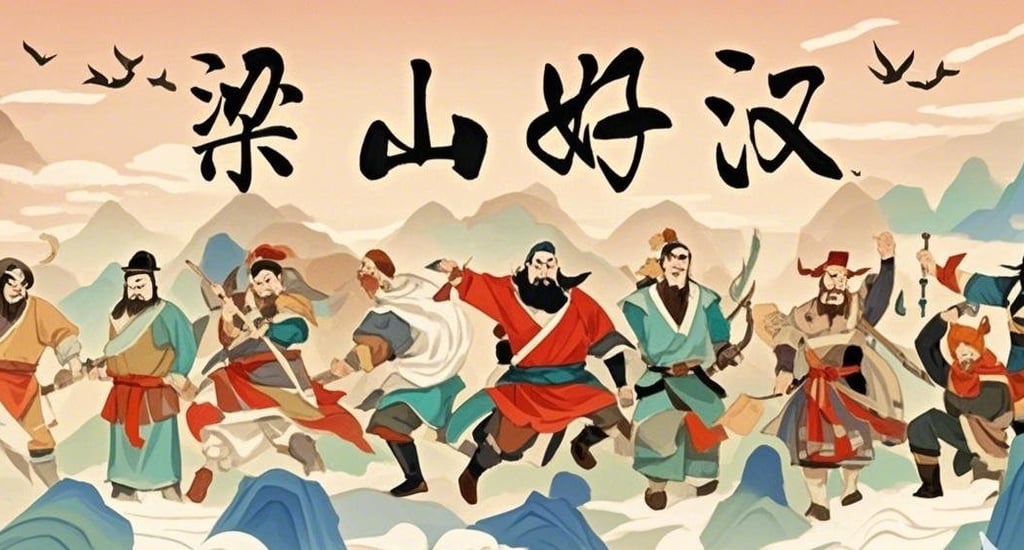

1. Water Margin: A Legend of Noble Outlaws
Written by Shi Nai'an in the late 14th century, "Water Margin" (Shuihu Zhuan) presents a world that parallels the tales of Robin Hood in Western literature, yet offers a far more expansive vision of martial heroism. The narrative follows 108 outlaws who, led by Song Jiang, are forced to gather at Mount Liang and "enforce justice on Heaven's behalf" (a traditional Chinese concept meaning to punish evil and uphold righteousness). These heroes, each driven from their ordinary lives by different circumstances, find refuge at Mount Liang, their sanctuary against corrupt feudal rule. Though they eventually accept amnesty from the government and achieve military glory, their story concludes with a profound tragic resonance.
The novel's depth lies in its masterful portrayal of rebellion and social injustice. Each character embodies different forms of resistance and life attitudes: Song Jiang's leadership charisma, Wu Song's fearless courage, Lu Zhishen's unrestrained spirit, and Lin Chong's resilient endurance. Iconic episodes such as "Wu Song Fights the Tiger" showcase individual heroism, whilst "Lu Zhishen Uproots the Willow Tree" exemplifies magnificent spirit, and "Lin Chong's Snowy Night Journey to Liangshan" reveals the inevitability of rebellion under oppression. These narratives not only create vivid heroic figures but also profoundly illustrate how ordinary people sought justice and dignity under authoritarian rule.
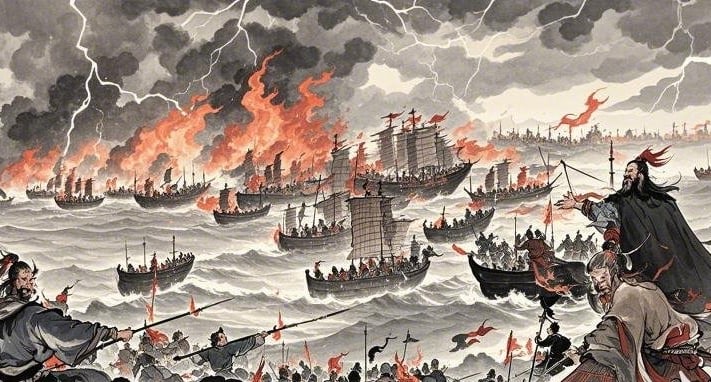

2. Romance of the Three Kingdoms: An Epic of an Era's Heroes
"Romance of the Three Kingdoms" (Sanguo Yanyi), penned by Luo Guanzhong in the late 14th century, whilst based on historical events, transcends its historical foundation to become one of the most influential cultural symbols in Chinese civilisation. The story unfolds between 184 and 280 CE, chronicling the power struggles and military conflicts among the three kingdoms of Wei, Shu, and Wu.
The work's enduring appeal lies in its ultimate portrayal of heroism and strategic wisdom. The "Oath of the Peach Garden" sworn by Liu Bei, Guan Yu, and Zhang Fei demonstrates the paramount Chinese value of "yi" (righteousness)—a spiritual bond that often surpasses blood ties in strength. The wisdom of Zhuge Liang, the grand ambition of Cao Cao, and the loyalty of Guan Yu represent different value orientations and life pursuits. Particularly, Zhuge Liang's "Empty Fort Strategy" exemplifies the essence of traditional Chinese military wisdom, a approach of using wisdom to overcome strength that continues to influence business and diplomatic strategies today.
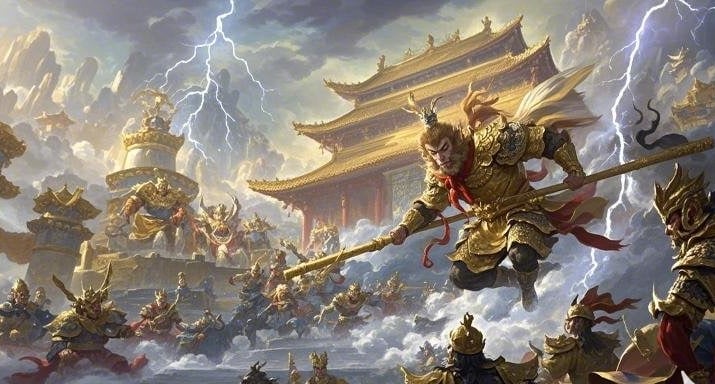

3. Journey to the West: An Oriental Fantasy Epic
"Journey to the West" (Xi You Ji), authored by Wu Cheng'en in the mid-16th century, stands as China's first romantic novel of mythological adventure. If "The Lord of the Rings" crafted a Western fantasy world populated by elves, dwarves, and humans, then "Journey to the West" weaves a mythological universe where demons, deities, and Buddhist-Taoist philosophy intertwine to create a distinctly Eastern philosophical narrative. Based on the historical westward journey of the monk Xuanzang, it tells the legendary tale of a Buddhist monk and his three disciples travelling to India to obtain sacred scriptures.
The work perfectly integrates Buddhist concepts of spiritual cultivation with traditional Chinese culture. The character of Sun Wukong (the Monkey King) particularly stands out—rebellious yet loyal, brave yet flawed, symbolising the pursuit of freedom and justice. His seventy-two transformations, cloud-somersaulting ability, and battles with various demons create a rich tapestry of fantastic elements. Meanwhile, the steadfast faith of Tang Sanzang (the monk), the humorous gluttony of Zhu Bajie, and the quiet reliability of Sha Wujing form a diverse yet harmonious team. The story conveys profound life philosophy: everyone faces their own "journey west", requiring wisdom and courage to overcome challenges and temptations.
Five centuries later, this story continues to demonstrate remarkable vitality. From traditional opera to modern animation, from television series to the latest video game "Black Myth: Wukong", the figure of Sun Wukong constantly reinvents itself, showcasing extraordinary artistic longevity.
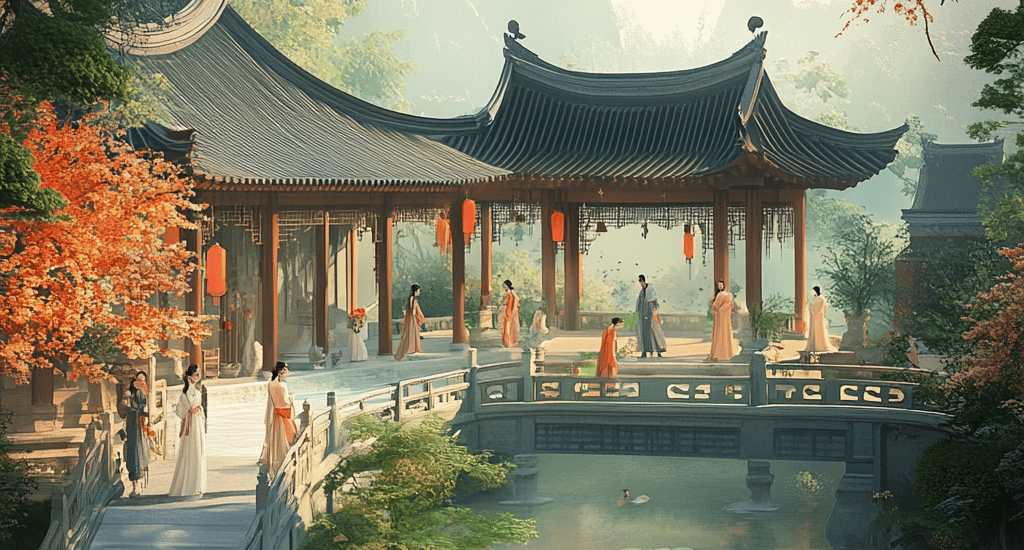

4. Dream of the Red Chamber: A Chronicle of Aristocratic Decline
"Dream of the Red Chamber" (Hong Lou Meng), written by Cao Xueqin in the mid-18th century, is acclaimed as the summit of Chinese classical fiction. While "Pride and Prejudice" illuminates marriage and love in British aristocratic society, "Dream of the Red Chamber" presents a comprehensive portrait of feudal Chinese society. The novel chronicles the rise and fall of four great families—Jia, Shi, Wang, and Xue—whilst centring on the tragic love story between Jia Baoyu and Lin Daiyu, depicting the intricate daily life and complex relationships within a grand aristocratic household.
The work's uniqueness lies in its profound insights into human nature, fate, and society. Under strict feudal ethical codes (traditional moral standards governing social behaviour), the pure love between Jia Baoyu and Lin Daiyu ultimately dissolves into tragedy. Through meticulous descriptions of aristocratic life—from poetry and gardens to cuisine and festivals—the work reveals the sophistication and depth of traditional Chinese culture.
Internationally, "Dream of the Red Chamber" has been dubbed "the Eastern 'Remembrance of Things Past'". French critics have praised Cao Xueqin for possessing "Proust's keen eye, Tolstoy's compassion, Musil's wit and humour, and Balzac's ability to observe and recreate all social classes". This masterpiece serves not only as a literary monument but as a panoramic display of ancient Chinese society.
Modern Influence and Contemporary Value
The Four Great Classical Novels serve as cultural codes for understanding Chinese perspectives on history, politics, life, and existence. Water Margin represents brotherhood, Three Kingdoms depicts strategy, Dream of the Red Chamber explores emotions, and Journey to the West discusses spiritual cultivation. In contemporary China, these works remain vibrant in various forms: "Romance of the Three Kingdoms" has spawned numerous video and strategy games, "Journey to the West" animations and TV series have accompanied generations of Chinese children, "Dream of the Red Chamber" has generated its own field of academic study ("Redology"), and the heroic tales from "Water Margin" continue to inspire various artistic adaptations.
For readers, if you enjoy tales of noble outlaws and the pursuit of justice and freedom, "Water Margin" will transport you to a world of passionate heroism; if you appreciate heroic epics, power struggles, and grand historical narratives, "Romance of the Three Kingdoms" will present you with a magnificent era; if you seek delicate emotional portrayals and profound insights into human nature and society, "Dream of the Red Chamber" will lead you into a world of poetic tragedy; and if you favour fantasy elements combined with deep philosophical wisdom in a journey of growth, "Journey to the West" stands as your perfect choice.
These classics have endured for millennia precisely because they carry not only the imprint of their times but also reveal universal human truths that transcend national boundaries. Regardless of geographical or cultural background, people find resonance and inspiration within them. They represent not merely treasures of Chinese literature but the shared spiritual wealth of humanity. We hope this article opens a window for you to understand Chinese classical literature and that you find your own insights and inspiration within these timeless stories.
